France unlikely to achieve 2017 deficit target: fiscal watchdog
This article from Reuters may be of interest to subscribers. Here is a section:
"Based on the information at its disposal, (the HCFP) considers as uncertain that the nominal deficit will be brought to less than 3 percent of GDP in 2017," it said in a report issued as Hollande's government prepares to publish its 2017 budget on Wednesday.
Finance Minister Michel Sapin dismissed the watchdog's concerns, saying that it was skeptical every year and yet the deficit targets had been met.
"I therefore reaffirm the seriousness of the budget and the government's determination to bring the deficit to less than 3 percent in 2017," Sapin said in a statement.
Paris hopes to rebuild its fiscal credibility with its European partners by targeting a deficit of 2.7 percent of GDP for 2017, the lowest in a decade and under the EU's limit of 3 percent.
A serial offender of the EU's fiscal rules, France has delayed bringing its deficit below 3 percent several times under both Socialist and center-right governments in recent years.
EU Economic Affairs Commissioner Pierre Moscovici, who in effect polices government finances to ensure they are living up to their promises, said he expected France to get the deficit below the 3 percent threshold next year.
"I think it's possible," Moscovici, a former finance minister in Hollande's first government, said in an interview with L'Opinion newspaper.
France's fiscal watchdog said government forecasts for 1.5 percent GDP growth this year and next were optimistic, noting they were higher than what most private sector economists expected.
"The government's growth outlook, which is based on a number of favorable assumptions, does not display the caution necessary to best meet public finance targets and commitments," it said.
More than any other country France exemplifies that within the EU there is one set of rules for large countries and quite another for smaller ones. If any smaller country had failed to adjust its fiscal deficits in the same way that France has it would have come under severe scrutiny from the EC, ECB and possibly even the IMF. Yet for France there has been no such talk despite the fact it has been a serial offender.
It will border on the comical to watch how this plays out if France cannot meet its deficit goal and gets off scot-free but Italy is prohibited from bailing out its banks; forcing a bail-in of retail deposit holders. It represents a significant threat early next year not least because both France and possibly Italy will be facing into elections and the EU’s bureaucracy will also have to muster the wherewithal to try and negotiate a deal with the UK. Against that background, the smart move from the UK’s perspective would be to take advantage of potential disarray in Europe to force a quick resolution of discussions in its favour. We’ll see, but 2017 appears likely to offer ample scope for additional volatility.
Right now the focus on attention is on Deutsche Bank’s desperate attempts at avoiding nationalisation but it is simply a symptom of the wider malaise in the Eurozone’s banking sector which has been further debilitated by negative interest rates. It is worth considering that with so many challenges ECB monetary policy is likely to remain accommodative and that not all areas of the Eurozone have been affected in the same way.
Much of Eastern Europe avoided the worst effects of the sovereign debt crisis by simply joining the EU later than countries like Greece, Spain, Portugal and Ireland. However they now either have currencies pegged to the Euro or have already adopted the currency. That means that have ECB rates and access to funding at very attractive rates.
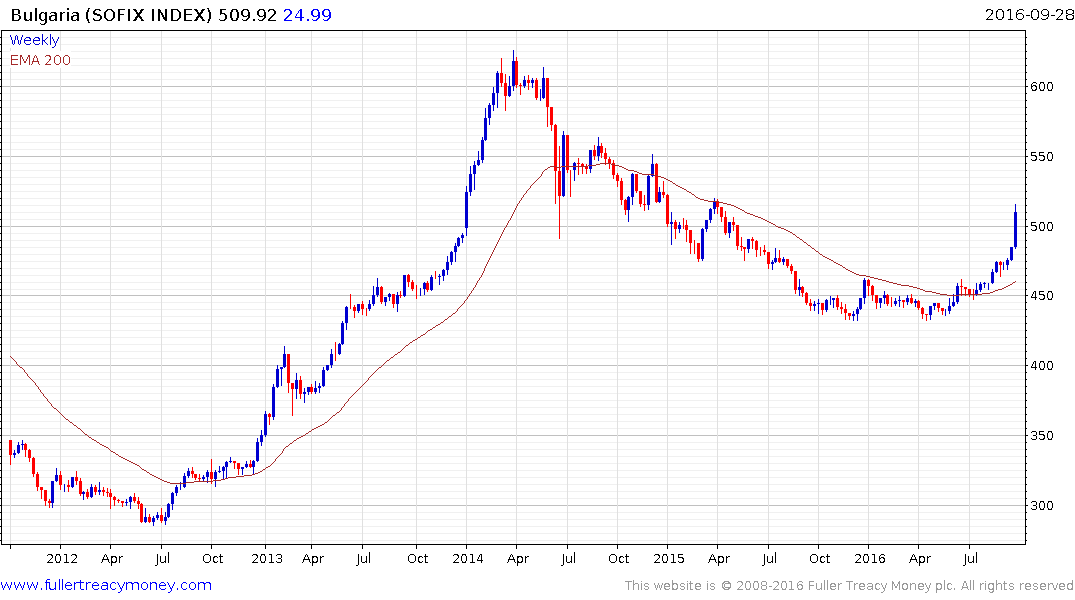
Bulgaria’s market surged this week on the opening of the first country ETF but it has held a progression of higher reaction lows for much of this year. It is somewhat overbought as a result of the surge but a sustained move below the trend mean would be required to question the medium-term upward bias.
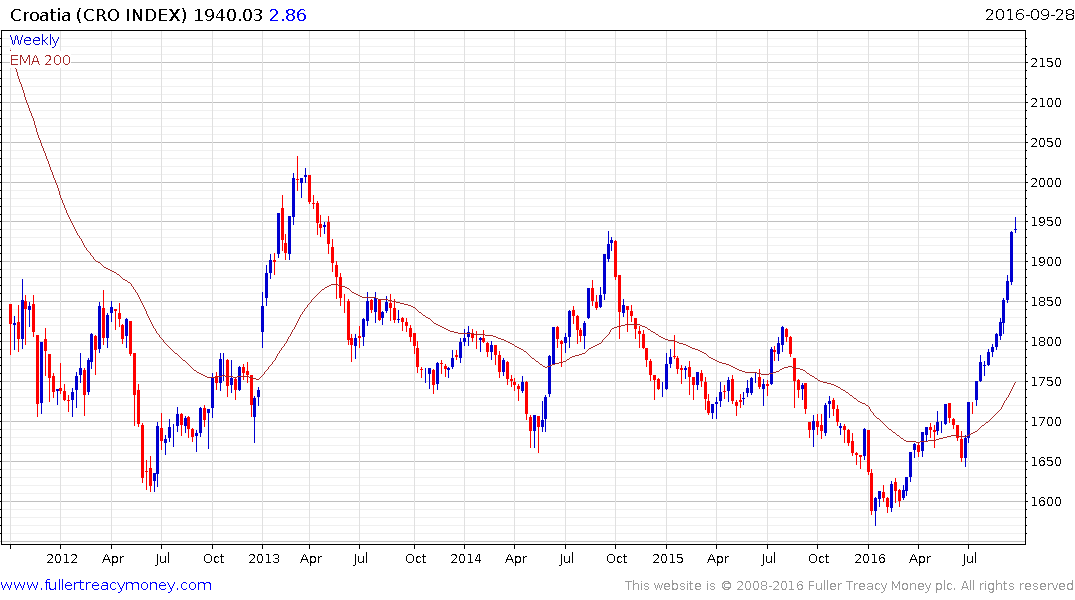
Croatia’s Index has been rallying for most of the year but the pace of the advance picked up from July and it is now testing the region of the highs of the last five years. Some consolidation of this powerful gain is looking increasingly likely but, provided it can hold at least 50% of the advance, medium-term potential for additional upside can be given the benefit of the doubt.
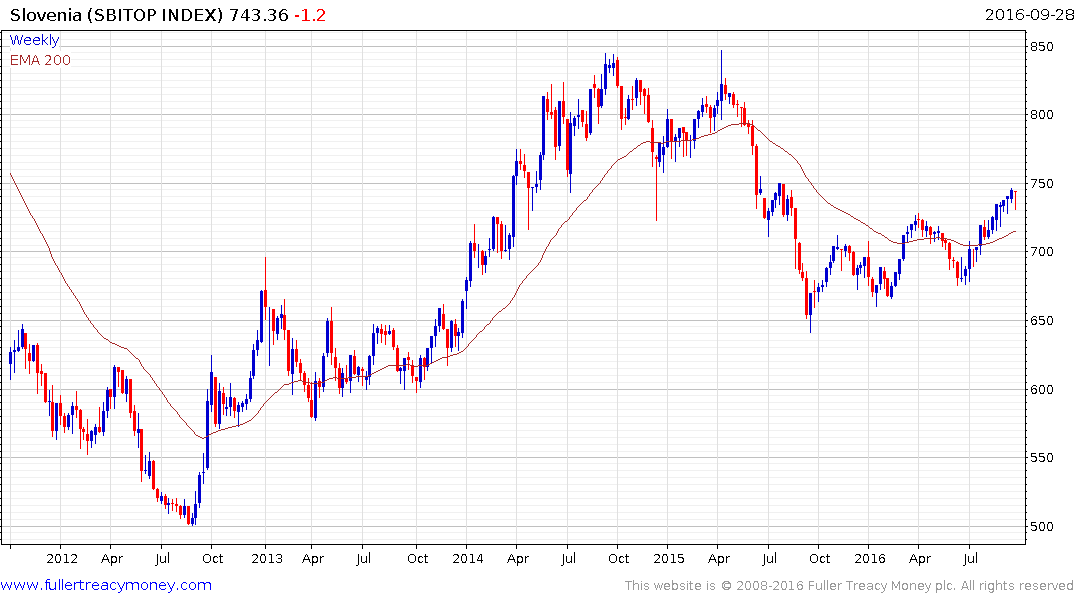
Slovenia, which adopted the Euro in 2007, has been ranging with a mild upward bias since late last year and a break in the progression of higher reaction lows would be required to question the upward bias.
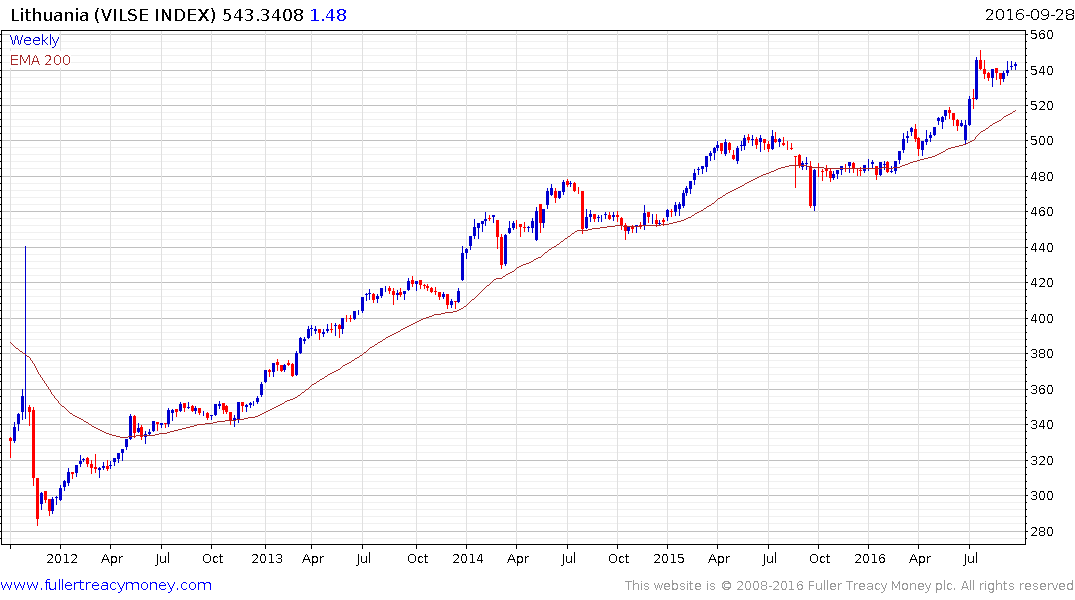
The Lithuanian Index is consolidating its July surge but remains in an otherwise consistent uptrend.
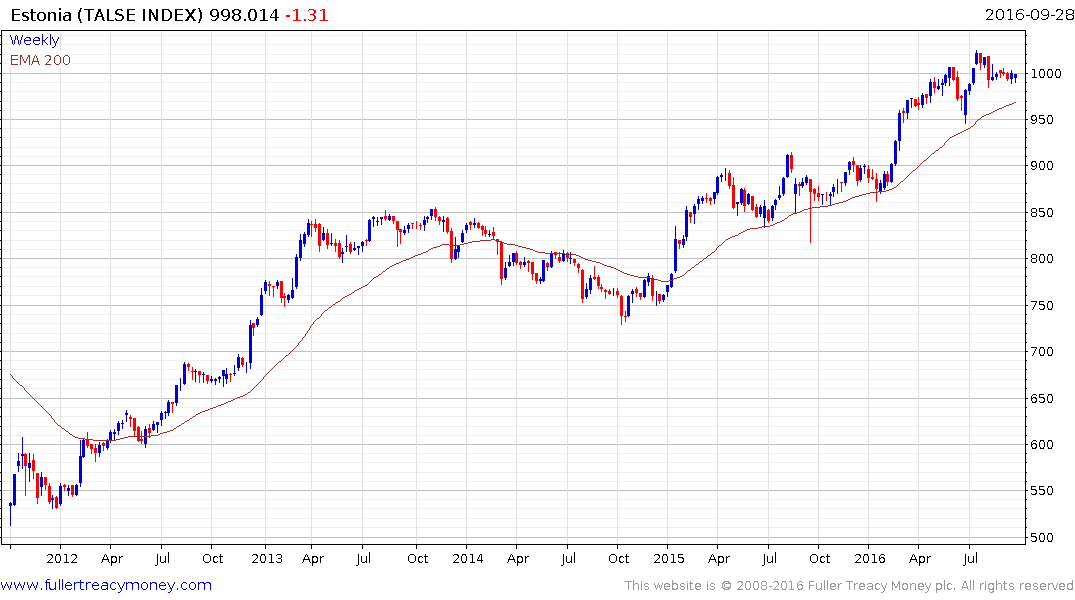
The Estonian market also remains in a reasonably consistent uptrend.
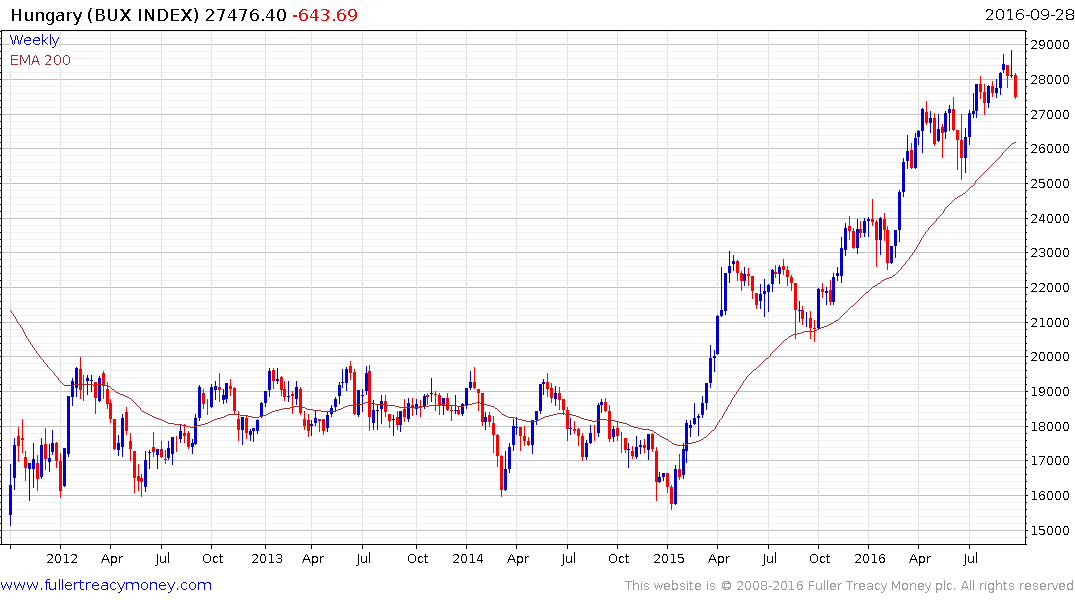
The Hungarian Index has hit at least a near-term peak and a reversion towards the mean is looking increasingly likely within what has so far been an impressive rally from the 2015 low.
Unfortunately I do not know of a fund that focuses on the smaller counties on Europe’s eastern periphery. Those that offer Eastern Europe ex Russia tend to overweight larger markets like Poland and the Czech Republic which have not been performing in line with the above markets. .


